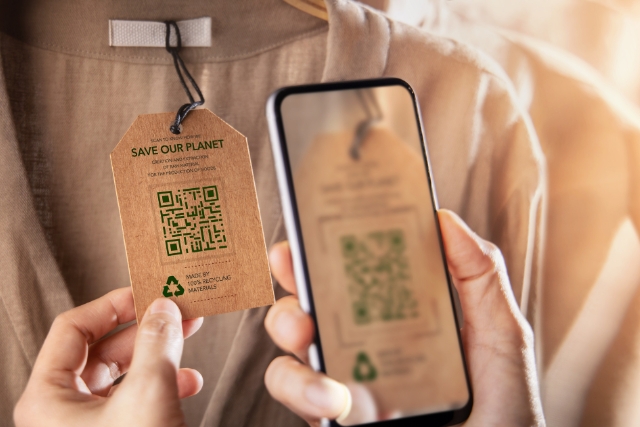
In recent years, Corporate Social Responsibility (CSR) has emerged as a pivotal pillar for companies worldwide, particularly in the B2B sector. CSR refers to the ethical and sustainable practices that a company chooses to adopt with the aim of contributing positively to society. These practices can range from environmental conservation efforts to corporate philanthropy and fair trade.
In the B2B world, CSR is not just a ‘nice-to-have’; it’s becoming a business imperative. Companies are realising that their stakeholders – be they customers, suppliers, or employees – increasingly expect them to do more than just provide goods or services. They want businesses to make a positive impact on the world.
The growing importance of Corporate Social Responsibility in the B2B world signifies a shift in how businesses operate and interact with their stakeholders, shaping the future of commerce in profound ways.
The Growth of CSR in the B2B Environment
The rise of Corporate Social Responsibility (CSR) in the B2B world has been driven by several key factors. One of the primary catalysts for this trend is the growing awareness and concern for environmental, social, and governance (ESG) issues among stakeholders. In an era of transparency and digital connectivity, businesses are held accountable for their actions more than ever before. Today’s consumers, employees, and investors are increasingly conscious about their choices and affiliations, and they expect the companies they interact with to align with their values. From sustainable sourcing to ethical labour practices and community engagement, CSR initiatives serve as a testament to a company’s commitment to these values.
Another factor propelling the importance of CSR in the B2B world is the evolving regulatory landscape. Governments around the world are tightening regulations related to environmental protection, worker rights, and corporate governance. By integrating CSR into their core strategy, businesses can stay ahead of these changes and ensure compliance.
The Societal Importance of CSR
Putting aside the business benefits for a moment, let’s take a look at the broader societal reasons why B2B brands should focus on corporate social responsibility. Businesses are not isolated entities; they form an integral part of the societies in which they operate. By adopting CSR initiatives, B2B marketers can show that they acknowledge this interdependence and are willing to contribute positively towards societal growth.
Furthermore, CSR initiatives can help address several pressing global issues, such as climate change, inequality, and poverty. Many consumers, employees, and stakeholders are deeply concerned about these issues and expect businesses to play their part in tackling them. B2B marketers who champion CSR efforts can demonstrate that their company is not just profit-driven but also values-driven, willing to invest in creating a better, more equitable world.
CSR also allows businesses to uphold and respect human rights, ensuring fair treatment of employees, suppliers, and customers. It promotes diversity, inclusion, and equality, creating a workplace culture that respects and values individual differences. Such an environment boosts employee morale, productivity, and loyalty.

The Impact of CSR on B2B Marketing Strategies
The influence of Corporate Social Responsibility (CSR) on B2B marketing strategies is profound, offering potential benefits that make it a priority for businesses today.
CSR initiatives help to strengthen brand image and reputation. In the B2B sector, where long-term relationships and trust are essential, having a strong reputation for responsible practices can be a significant differentiator. It signals to potential clients and partners that your company is committed not just to profit but also to positive societal impact.
Another reason why B2B marketers should prioritise CSR is customer engagement and loyalty. As we mentioned above, today’s B2B customers are more discerning and value-driven. They appreciate and often expect companies to demonstrate commitment to causes that matter to them. By integrating CSR into your marketing strategy, you can connect with customers on a deeper level, fostering loyalty and promoting long-term relationships.
Furthermore, CSR can open up new business opportunities. Many companies today prefer to do business with partners that have robust CSR programs. By showcasing your CSR initiatives in your marketing materials, you can attract these companies and potentially explore new markets.
Finally, CSR can help attract and retain top talent. Employees today want more than a paycheck; they seek meaningful work and want to associate with companies that reflect their values. CSR can be a powerful tool for employee recruitment and retention, which is critical in the B2B sector, where the quality of personnel can significantly impact customer relations and service delivery.

The Market for CSR in the B2B World
The current market for Corporate Social Responsibility (CSR) in the B2B world is experiencing notable growth and evolution. Research indicates that a significant 72% of B2B buyers are more likely to purchase from companies that perform well on socio-political issues they deem important. This highlights the increasing expectation for businesses not just to provide quality products or services but also to demonstrate responsibility towards society and the planet.
Investments in CSR are also on the rise, with 55% of B2B companies planning to increase their investments in CSR, according to Forrester’s 2022 B2B Brand And Communications Survey. This growing commitment to CSR is driven by the realisation that it helps businesses align with their customers’ values and can significantly affect a firm’s market value.
Ready to Embrace CSR in Your B2B Strategy?
I’ve spent years exploring the intersection of business and social responsibility and have seen first-hand why B2B brands should focus on corporate social responsibility. It’s not just about doing good – it’s about building stronger relationships, fostering trust, and securing long-term success.
I’m here to help you navigate this journey. With my extensive experience, I can guide you in integrating CSR into your business strategy effectively and authentically. Let’s work together to align your business with your values and make a positive impact on the world.
Don’t hesitate to get in touch for further information or consultation. Remember, when it comes to CSR in the B2B world, every step you take matters.

